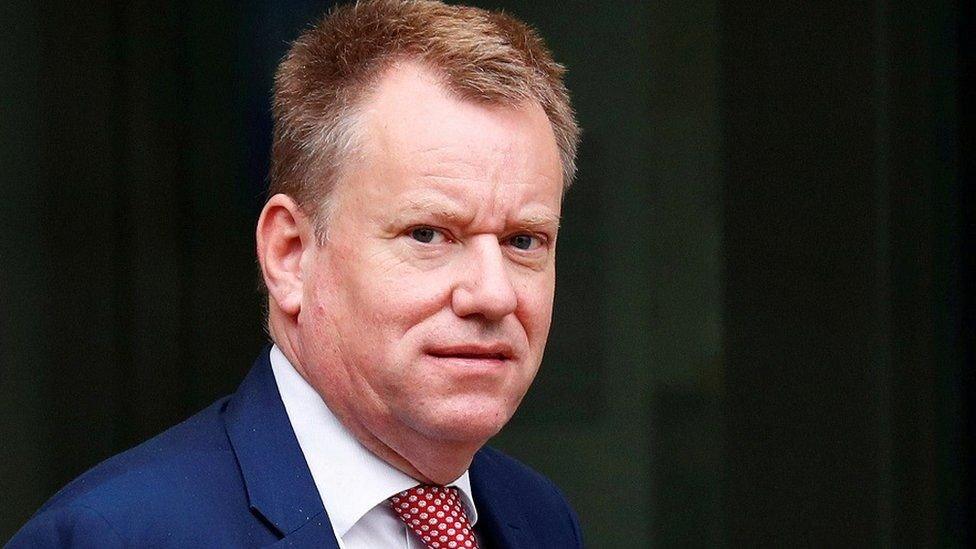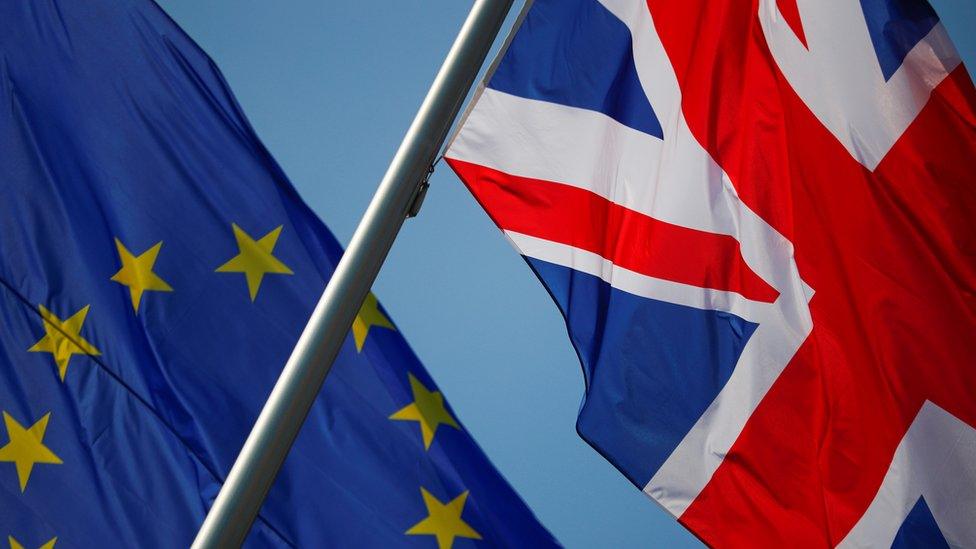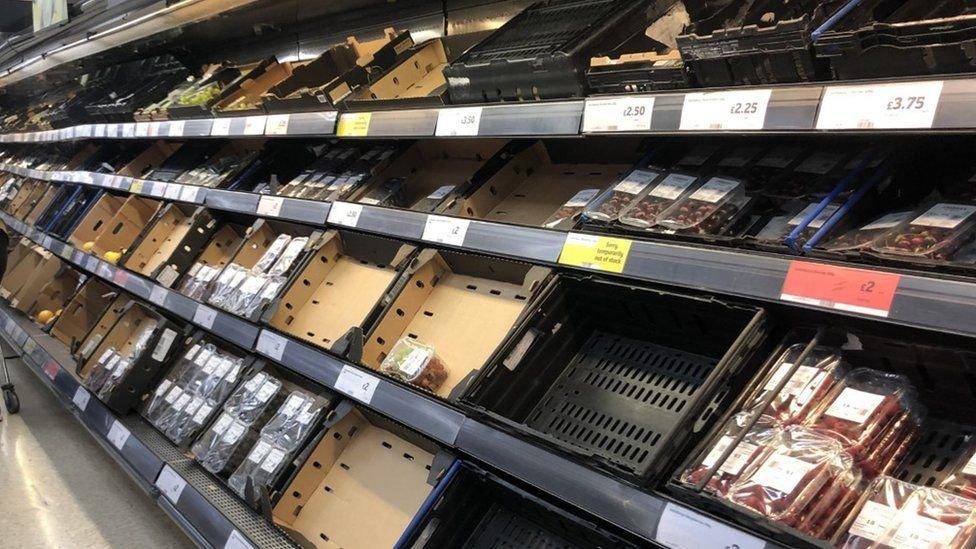Brexit negotiator says EU agri-food agreement 'difficult to reach'
- Published

Lord Frost said the protocol need to be implemented in a balanced and pragmatic way
The UK's Brexit Minister has played down the prospects of reaching a new agri-food agreement with the EU.
Such an agreement is seen as central to reducing controls on goods moving from Great Britain to Northern Ireland.
Lord Frost said there is a "pretty significant difference" between the EU and UK on what sort of deal is possible.
He said it is a "fundamental issue of principle" that the UK will not dynamically align with EU rules.
Dynamic alignment, otherwise known as a Swiss-style arrangement, would involve the UK following EU rules in this area indefinitely.
Switzerland aligns with EU rules which means its products do not have be checked as they enter the EU, but they have no power in the setting of those rules.
Some political parties in Northern Ireland support such a deal as it would eliminate the most onerous checks and controls required by the NI Protocol.
Equivalence arrangement
Lord Frost told a House of Lords committee that this would not work for the UK as it needs control of its own rules to do trade deals.
He said the UK would like an equivalence arrangement in which the EU would recognise UK food production standards as being equivalent to its own.
The EU has limited equivalence agreements with New Zealand and Canada.
These mean that some products have minimal physical checks but still require export health paperwork.
Lord Frost said: "The EU didn't want to include an equivalence mechanism last year but, if they would like to, we would be very happy to pick up negotiations."

Lord Frost's senior official on Northern Ireland said discussions with the European Commission were "actively ongoing"
Asked if this issue was at an impasse he said: "I think the discussions are not over.
"I think there is a pretty significant difference between the two conceptions that may in the end make it difficult to reach agreement but we keep trying."
Lord Frost's senior official on Northern Ireland, Rebecca Ellis, said that discussions with the European Commission were "very actively ongoing".
She said there would be three days of meetings between the two sides this week and that the UK had been producing discussion papers on the operation of the NI protocol.
On Monday the BBC revealed that a UK 'roadmap' on the protocol contained a proposal to phase in new Irish Sea border checks on food products in four stages from October.
The roadmap document covers more than 20 separate issues including medicines, access to databases, pet travel and the VAT treatment of second-hand cars.
The committee asked Lord Frost if they could see the roadmap but he declined as it is a live negotiating document.
"It's obviously a little unfortunate that some of these documents seem to have got out through some other route,' he added.
Related topics
- Published17 May 2021

- Published17 May 2021

- Published2 February 2024
